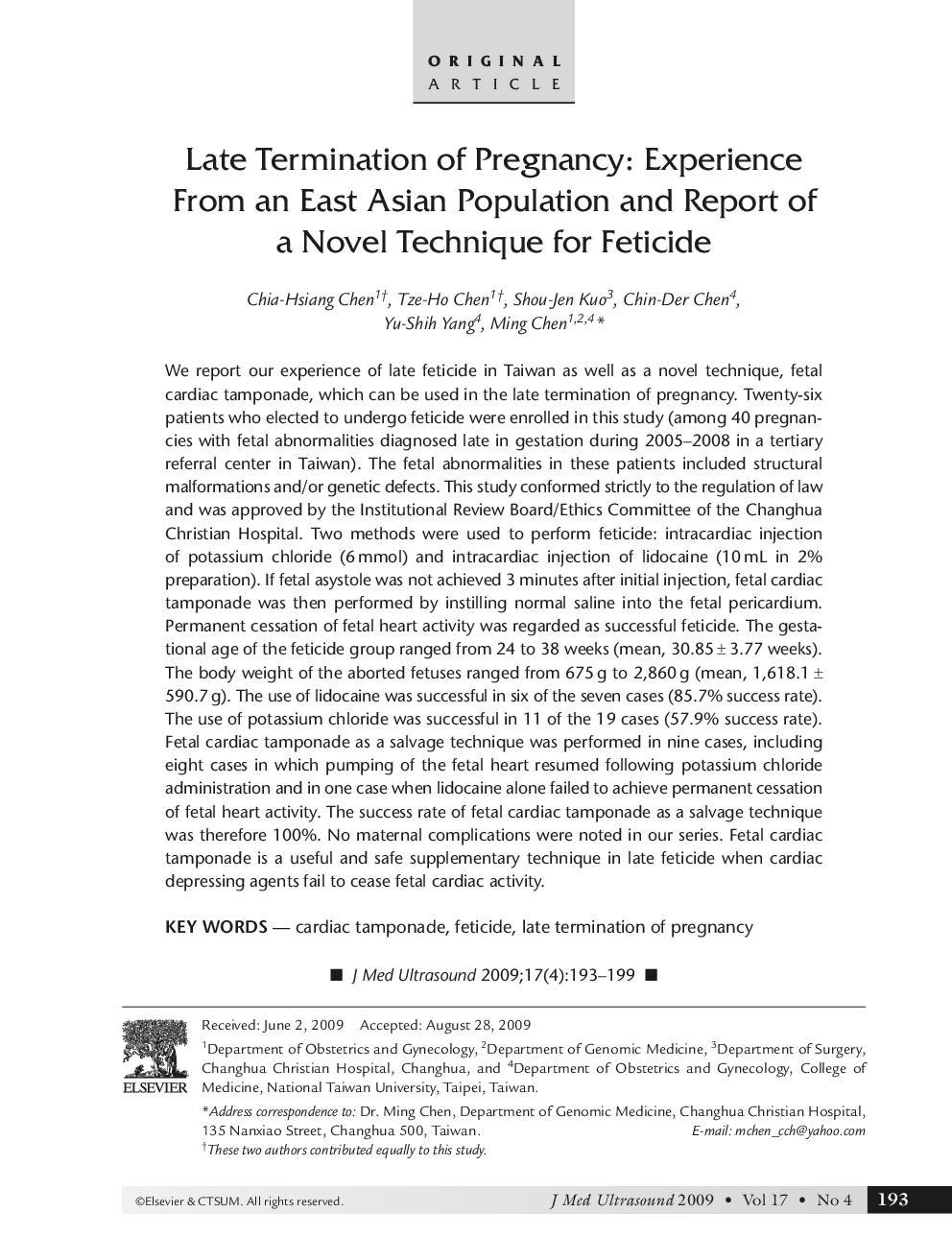| Article ID | Journal | Published Year | Pages | File Type |
|---|---|---|---|---|
| 4233293 | Journal of Medical Ultrasound | 2009 | 7 Pages |
We report our experience of late feticide in Taiwan as well as a novel technique, fetal cardiac tamponade, which can be used in the late termination of pregnancy. Twenty-six patients who elected to undergo feticide were enrolled in this study (among 40 pregnancies with fetal abnormalities diagnosed late in gestation during 2005–2008 in a tertiary referral center in Taiwan). The fetal abnormalities in these patients included structural malformations and/or genetic defects. This study conformed strictly to the regulation of law and was approved by the Institutional Review Board/Ethics Committee of the Changhua Christian Hospital. Two methods were used to perform feticide: intracardiac injection of potassium chloride (6 mmol) and intracardiac injection of lidocaine (10 mL in 2% preparation). If fetal asystole was not achieved 3 minutes after initial injection, fetal cardiac tamponade was then performed by instilling normal saline into the fetal pericardium. Permanent cessation of fetal heart activity was regarded as successful feticide. The gestational age of the feticide group ranged from 24 to 38 weeks (mean, 30.85 ± 3.77 weeks). The body weight of the aborted fetuses ranged from 675 g to 2,860 g (mean, 1,618.1 ± 590.7 g). The use of lidocaine was successful in six of the seven cases (85.7% success rate). The use of potassium chloride was successful in 11 of the 19 cases (57.9% success rate). Fetal cardiac tamponade as a salvage technique was performed in nine cases, including eight cases in which pumping of the fetal heart resumed following potassium chloride administration and in one case when lidocaine alone failed to achieve permanent cessation of fetal heart activity. The success rate of fetal cardiac tamponade as a salvage technique was therefore 100%. No maternal complications were noted in our series. Fetal cardiac tamponade is a useful and safe supplementary technique in late feticide when cardiac depressing agents fail to cease fetal cardiac activity.
